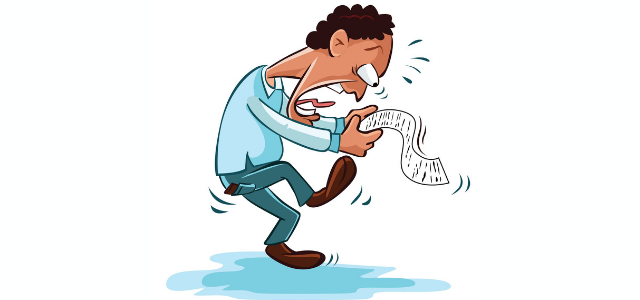With a national election creeping closer, recent and on-going geopolitical, deal/no-deal waves, ‘walls’ – call it what you will – what else can have an effect on the South African economy and consumers’ already dire pockets? To name but a few – the ‘close to home REALITY’ of electricity bill extras, sin tax hikes, the previous year’s Value Added Tax (VAT) and sugar tax increases as well as other value and supply chain escalates can cause some serious money restraints for South African consumers.
There are certain aspects beyond the consumers’ control that diminishes their disposable income and the effects will not always be immediate. One thing is for sure – the poor and middle-class consumers are already finding themselves in a financial bind.
Add-on power bills
In March the National Energy Regulator (Nersa) announced a steep power bill increase due to the Electricity Supply Commission’s (Eskom) critical state and serious revenue shortfall. From now on (April 2019) South Africa will pay at least 9.41% more for electricity (way above inflation) on top of the 4.41% increase that was agreed upon in 2018. Which brings the total up to a massive 13.82% power increase for this year. Not to even mention future expected hikes that will be added – another 8.1% in 2020 and 5.2% in 2021. Recent opinions and research highlight that it can now cost the consumer approximately R1 500 extra per year for electricity usage.
Apart from this reality, another concern arises – how can the power tariffs increase while load shedding can still cast darkness? Are consumers essentially now going to pay for using no electricity or blackouts in times of no power?
Do note: in various cases many consumers use paraffin (instead of electricity) and since winter is on the way, regular paraffin increases (as announced with petrol and diesel add-on costs) can surely rip more than a few already empty pockets. Luckily for April 2019 illuminating paraffin is set to stay the same (yet, still quite costly for the poor) according to Wheels24.
Sin tax hikes
Those teeny luxuries and habits consumers rely on will most certainly need to be revised. Remember: it’s the tiny drops that fill the bill bucket in the end. The following excess duties on alcohol and tobacco are in effect from April 2019:
- One can of beer will now cost 12 cents more. Note: Unchanged duties on Sorghum beer.
- A 750ml bottle of wine goes up by 22 cents.
- A bottle of sparkling wine (750ml) goes up by 84 cents.
- A bottle of whisky and other spirits will now cost consumers a staggering R4.54 more.
- A pack of cigarettes goes up by R1.14 cents.
- And lastly, a typical cigar will now cost 64 cents more.
Fuel increases
Factors like toll fee hikes, General Fuel and Road Accident Fund levies, play a role when it comes to fuel increases – overall effecting consumers. During the #RSABudget2019 speech the government proposed to increase the General Fuel levy by 15 cents per litre with effect from 3 April 2019. And, according to the Automobile Association (AA) an additional tax – the Carbon Tax, will also be implemented from 5 June 2019. Consumers are, therefore, advised to continue to carefully plan their current transport schedules and methods.
VAT & Health Promotion Levy – a few 2018 hikes
Apart from certain 2019 increases, consumers might not have realised what bit-by-bit implications the health promotion levy (that taxes sugary beverages) and the Value Added Tax (VAT) increase of 2018 still have on their overall expenses. Due to last year’s VAT increase, consumers’ cost of living has in many cases increased and, although the VAT rate remains unchanged for the 2019 year at 15%, food products and groceries are already unbearably expensive for various households. Comparisons and research done earlier this year basically show that South Africans are paying more for food than the British. At least white bread flour, cake flour and sanitary pads are zero-rated for VAT – a very slight grocery bill relief from April and onwards.
Value chain consequences due to certain hikes
Unnoticeable things can have major implications on the consumer’s overall budget. The consumer’s value chain can easily be in strain due to a ‘ripple effect experience’. One hike (a ‘cause’) can lead to another hike (an ‘effect’) in the process. Take the electricity bill increase, for example, that can most certainly spike inflation, and yet again, the consumer will pay the expensive on-going price.
The same goes for things like fuel costs that impact food prices, for example, freight charges being passed on to the consumer in the end. And, not to mention individual public transport operators that might experience lower volumes due to citizens suddenly using alternative transport methods (when fuel prices go up) and can, in turn, raise ticket fees. Again, having an impact on the consumer’s financial state.
The huge electricity increase followed by expensive consumer products, fuel and other value chain implications are indeed big blows for South Africans’ financial reality. Consumers have to, therefore, stay updated with the overall economic news that is going on, try to live a simplistic lifestyle and continue to manage their own money situations as best they can. In worse-case or already indebted scenarios they can contact a registered debt counsellor, financial expert or a trusted private banker to get urgent assistance in this dry and dire times.
